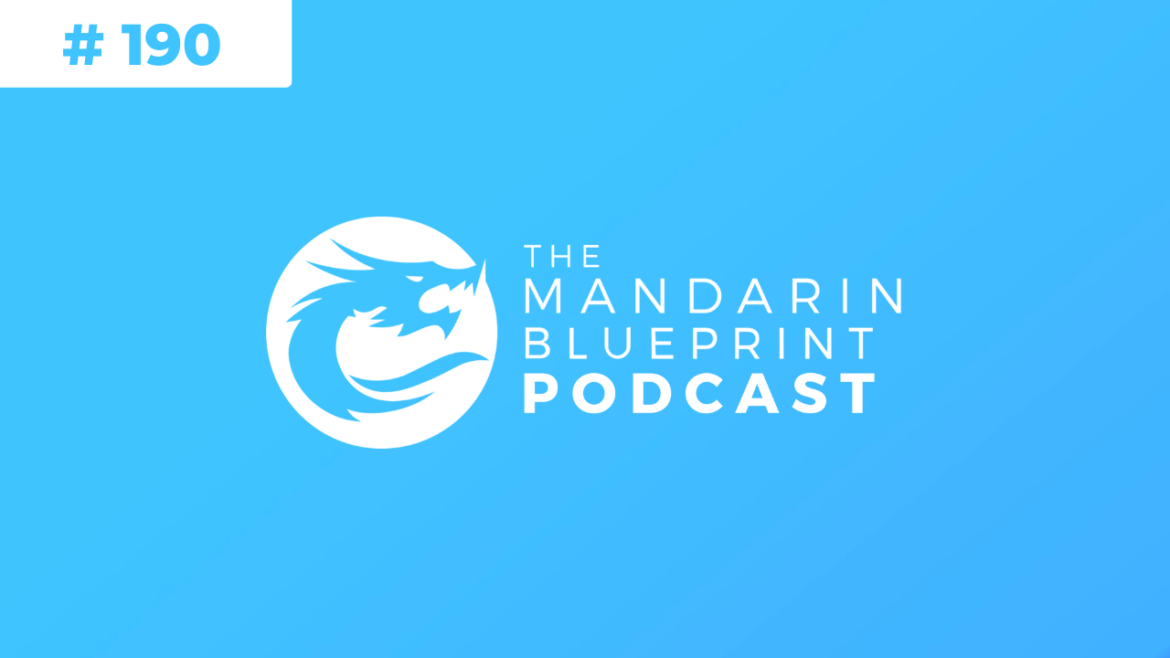欢迎光临! Welcome!
You can now subscribe to the podcast by the links below, or you can subscribe by copying the following URL into your favorite podcast APP.
The Mandarin Blueprint Podcast focuses primarily on The Blueprint online curriculum. Creators Luke Neale & Phil Crimmins answer questions and comments, discuss topics related to China and Mandarin learning, and have special guests.
Want to learn how to speak fluent Chinese fast? Join our free Webinar right here.
0:00 Affiliate Link & Reviews
Become a Mandarin Blueprint Affiliate
Leave us a Google Business Review 🙂
00:10 Traversing Awe (From the Mandarin Insights Newsletter)
Sign up for the Mandarin Insights Newsletter Here
“Awe” might be the most meaningful emotion a person can feel.
It’s a mix of intense curiosity and (sometimes overwhelming) fear. What a combo.
When you’re feeling awe, you’re fully engaged in the moment but also highly unsure of the path ahead.
It’s that feeling that our ancestors got every time they looked up at the night sky and saw the cosmos staring back at them (sadly, we see this less and less these days).
Here’s another example:
China’s history and language are highly awe-inspiring…
To hear more, check out the podcast recording.
12:31 Comments & Emails
Reno McK by Community
Is it unwise to de-couple the learning of characters from the words? I find that learning new characters requires a good frame of mind (not tired, relaxed, good mood) so it’s become the biggest friction for my daily routine. However, when I am in a great mood, I can finish a whole level or two in a sitting. The only problem is that then my new character learning is several levels ahead of my new vocab and sentence cards.
I know that we are all on our own journey, but I ask “is it wise?” because I can also see how finishing all of one level at a time might be synergistic and might be shorter in the long-run. Even if it feels like a slog now.
What do you guys do?
PS: Adding a new character & corresponding word(s) at once also has the side-effect of sometimes having the words show up in reviews first. Thus adding difficulty
22:43
Eugene Lombard by CommunityHello fellow Mandarin learners,
I recently started the MB, Phase 1.
I’m fortunate to be living in China, however, my Chinese language level is not good. I tend to get overwhelmed with the language as I’m not always sure if what I’m studying is any good, the pace feels extremely slow, I’m not learning fast enough, etc. It becomes demoralizing after a while.I’m not a beginner but also not quite intermediate.
I’ve signed up for this program because as a struggling but positive Chinese language learner, this program gives me hope and a much needed structure. I have tried many books, apps, and tutors in the past.
I currently have a tutor, and we follow a course book, with extra topics added throughout. I also use an app (focus on vocab and grammar) and guided reader (just started).
My question is, do I throw myself into the MB program and focus only on this content and the methods being taught, or do I continue with a tutor, apps, and other Chinese language books I have been using?
I’m afraid of becoming overwhelmed with content.
Any suggestions or guidance will be much appreciated.
Thank you
29:06
Christine by Community
Hi there, I know that it sometimes doesn’t help asking grammar questions, and most times I am prepared to just go with the flow, but this one has me stumped. This is the sentence: 公司的声誉不能毁在我们手里.
All the translation software translates this as: The company’s reputation cannot be ruined in our hands.
My question is: why is the meaning of the sentence not: The company’s reputation cannot ruin our hands?
Even if i remove the 在 and 里 from the sentence, it still comes up with the same translation.
But when I put in公司的医生不能毁我们手 it suddenly changes to: corporate doctors cannot ruin our hands.
Is this translation AI at work here, or is there a specific grammar construct that actually indicates the passive voice in the original sentence?
33:08
Jaimee K on Level 21 Complete
I’ve been reading stories on Du Chinese a lot lately. Starting out I had the pinyin up all the time, but I quickly realized that I was basically just looking at that. Sticking to what I know, roman characters. I had to make a conscious effort to look at the hanzi. The stories I’ve been reading are probably 95% characters that I already know, so I’ve since turned off the pinyin showing at all times and I’d say I’m doing all the better for it. Most sentences I haven’t needed to check the meaning of either. It’s very empowering seeing how much you can comprehend without translating.
35:16
Will Raley on 什么样 in Context
Is the 的 at the end of 你的手机什么样的 an omission of something the speaker finds obvious? Am I right in thinking the omitted word is just 手机?
38:14
Will Raley on 联系 in Context
For 你们还有联系吗… should it not be 还是 instead of 还有 to say “still”? I don’t recall seeing 还有 like this before.
39:29
Will Raley on 发 in Context
So for 每个月8日公司发工资 I am assuming 日 is interchangeable with 号?
40:26
Annette Bicknell on Vocab Unlocked from 尚
中国风成为一种受年轻人热爱的时尚。Does 风成= “eolian, produced by the wind” refer to the fleeting nature of what is fashionable at any given time? Trying to get my head around this word in this context.
42:15
KAH MIN CHONG on 时间 in Context
Perhaps I can also say … 先在的时间几点?
43:32
Will Raley on 行为 in Context
For 在父母面前,请注意自己的行为。why is the 请 invisible in the translation (Be cognizant to your behavior in front of parents.)? Would it work without the 请?
Additionally why is there no 你 in this sentence? I would normally think to say “你自己”?
Another question I have for 在父母面前,请注意自己的行为…
Why does it use “面前”? Shouldn’t it be the other way around (前面)? I don’t think I’ve seen it like that before.
47:21
Will Raley on 记得 in Context
For 我记得去年九月他来中国学了半个月的汉语…
would 我记得去年九月他来中国学了汉语半个月 also work?
The latter is how I would put it. I’m not seeing how the 的汉语 at the end works here.
50:00
Richard Krause on Vocab Unlocked from 彻
“学校要坚定不移地贯彻党的教育政策” Oh my! Perhaps you can rewrite some of the sample sentences that sound like propaganda.



